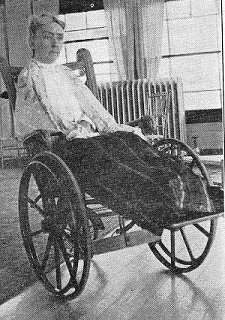I put my hand over my mouth
It’s something in the core of most people: a desire to find out what or who causes messes. And no one likes to get the blame for a mess. As children we blamed our brother or sister for the broken vase and when we’re older we blame our self-sworn enemies for the broken world. And it is broken. The world is a mess and many just can’t do mess.
Cal Jarrett, the father in the 1981 movie, “Ordinary People” said to his emotionally distant wife:
I’ve heard many explanations at the graveside, where people tried to explain or theologize accidents, cancer, or covid. These philosophical expeditions are fool’s errands. Others don’t blame, they just disconnect.
We’ve lived through a season of blame. Some blame the mandates, immune systems, fake news, Facebook, critical race theory, politicians, presidents, doctors, the masked, the unmasked, antifa, news outlets, millennials, boomers, China, political parties, and mandates. Blaming is what we do to make ourselves feel better. We feel more in control when we have an enemy we can attach to the post office walls of our souls. But that feeling becomes eventually void, brief and ephemeral. We dig into our own feeble logic and construct belief systems that tie neat little bows over our limited and inadequate world view. Our nature is to forward blame to others so that we can feel better about ourselves and rationalize the root of anger that grows beyond the borders of our personal lives. This is Springsteen’s darkness on the edge of town. We live in the shadows and snipe at our enemies from Twitter accounts and snarky memes.
One thing is certain: Blame keeps us in safe little bubbles where we don’t have to engage. It works until we realize that the bubble is an eternally dangerous place to be. That bubble of isolation and stagnation leads to an insidious rot of the soul.
I’ve witnessed the birthing process. It’s messy. There’s pain, blood, sweat, snot, cries, and danger. I’ve also experienced graveyards. There’s organization, specific dates, symmetry, and nice, tidy rows. But, I’d rather be in the labor room. You learn so much more.
Throughout the book of Job, we see men doing postmortems of tragedies that come in bunches. We’ve all had cascades of crises which appear together out of nowhere. The baby is sick, the car blows up and we get passed over for the promotion- all in one day. It’s easy to ask the wrong questions when life gets dark and messy. The default is often, “Why?” “What did I do?” Or, perhaps, an even more insidious question, “Why is God doing this to me?” More often than not, these questions are pointless.
The meaning of the book of Job is found late in the fourth quarter after all the armchair quarterbacking is completed. God finally speaks. A lot. Finally. God asks him 46 answerless questions about the mysteries of His purpose. 46! How would you like that divine interrogation? I can relate to Job’s response: “I am unworthy—how can I reply to you? I put my hand over my mouth.”
When God speaks all I can do is put my hand over my mouth.
When God speaks I get tired of my own opinions.
When God speaks I realize that maybe I should shut up about my theories for once.
When God speaks I realize that I’ll never understand the world on this side of eternity.
I say like Job: I have spoken once, but I have no answer— twice, but I have nothing to add.”
It brings Job to a majestic response: Only God knows. His plans are much higher than my mind can fathom.
There’s a joy in not having to explain God, and simply trusting Him when troubles come in bunches. There’s serenity when you hand the gavel over to the Almighty Judge of the universe. You don’t understand? Well, guess what. You aren’t God. How can I add anything to what God has already decreed and ordered in the timeline of His sovereign grace? I ask about injustice and He replies, “Go look at the elephant. I made that.” I worry about the future, and He tells me to look at the birds.
I give up.
I put my hand over my mouth.
